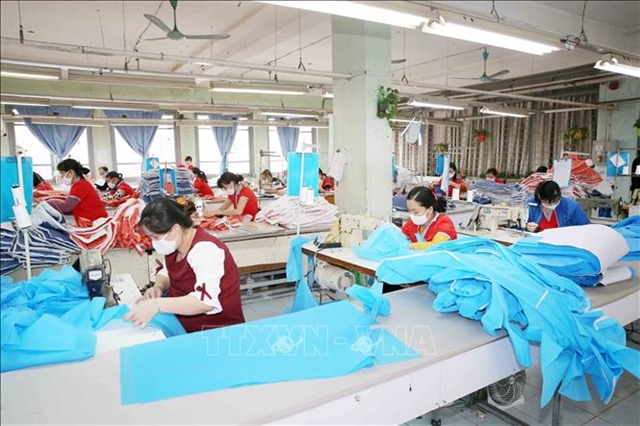To capitalise on the global demand for medical protective equipment, Vietnamese companies need to proactively study markets, demand and quality standards, experts have said.

To capitalise on the global demand for medical protective equipment, Vietnamese companies need to proactively study markets, demand and quality standards, experts have said.
The demand for personal protective equipment and other medical supplies is growing in several European and American countries as the COVID-19 pandemic continues to rage, providing an opportunity for Vietnamese businesses.
Deputy Director of the Investment and Trade Promotion Centre Cao Thi Phi Van told a seminar on June 3 in HCM City that the garment industry was going through an unprecedented crisis due to COVID-19 but the pandemic also brought a significant opportunity for Viet Nam to become the world’s face mask factory.
Many garment producers hit hard by the pandemic have switched to producing masks.
The demand for masks, protective equipment and medical gloves in the EU, the US and many other countries is very high whereas supply in the market is low because many factories have had to shut down to contain the spread of the disease.
But with COVID-19 contained to a great extent in Viet Nam, the country’s garment industry has moved into recovery mode and is stepping up production.
Some have received export orders worth millions of dollars.
Garment 10 Corporation Joint Stock Company said it has received orders for 400 million medical face masks from the US worth US$52 million, 20 million cloth masks from another US partner and two million cloth masks and six million medical face masks from a German partner.
With domestic demand fully met and surging demand in other countries, enterprises are keen on exports, but it is a unique product with medical standards to meet, and so many businesses have difficulty exporting, especially to the US and EU, Van said.
Nguyen Tran Khanh Hoang, CEO of Super Cargo Service Company, an international logistics firm, said the difficulties most exporters of medical protective equipment currently face are their inability to furnish the documents required for customs clearance, not knowing the import process in destination markets, the lack of transportation options, and high logistics costs.
Vietnamese businesses have no experience in exporting medical protective equipment, and so are not familiar with the requirements, leading to cases where they have shipped goods without necessary documents.
Transportation has been disrupted in many areas, making it difficult for businesses to ship their products or very costly.
Pham Thi Hoang Oanh, CEO of Indochine Vina Trade Promotion Co., LTd, said to take advantage of the opportunity to export medical protective equipment, businesses need to research information related to import markets. — VNS





